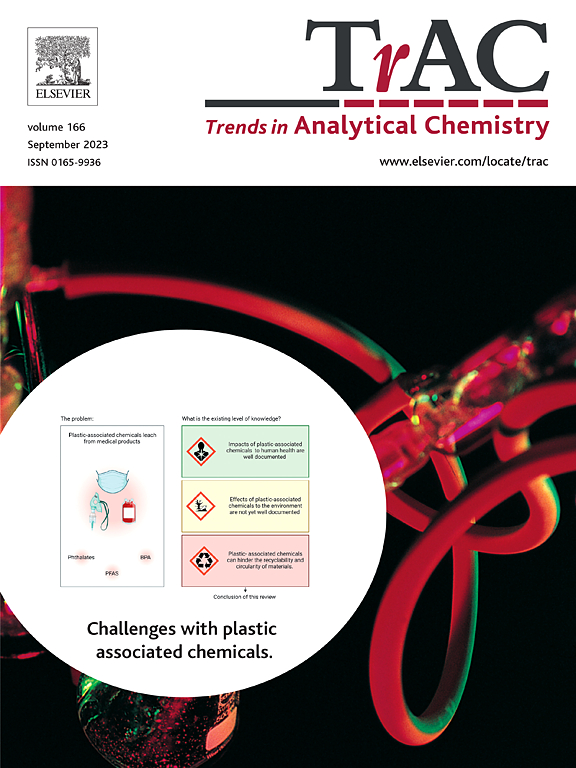Advanced deep learning algorithms in food quality and authenticity
IF 12
1区 化学
Q1 CHEMISTRY, ANALYTICAL
引用次数: 0
Abstract
Ensuring food quality and authenticity is critical to the food industry and consumers. With the advancements in Industry 4.0 and Artificial Intelligence (AI) technologies, deep learning (DL) offers unparalleled opportunities to extract information and make decisions on complex or large datasets. However, conventional convolutional neural networks (CNN) and recurrent neural networks (RNN) have limitations. The development of advanced DL algorithms can accommodate the growing demand for complex tasks and herald revolutionary breakthroughs in the field of food quality and authenticity identification, which will continue to be driven by the ongoing development of advanced DL. This review provides a comprehensive overview of various advanced DL algorithms for food quality identification and food authenticity analysis, including advanced variants of CNN, lightweight DL, sequential neural networks, graph neural networks (GNN), deep generative models (DGM), and target detection algorithms. It also surveys recent applications of advanced DL algorithms for Food quality inspection and authenticity analysis. This review discusses the challenges associated with advanced DL and the future trends, offering new insights into the development of advanced DL algorithms in food quality and authenticity. Challenges such as overfitting, scalability, interpretability, accessibility, data privacy, algorithmic bias, and the creation of large databases must be addressed in the application of advanced DL algorithms to drive their further iterations.

先进的深度学习算法在食品质量和真实性
确保食品质量和真实性对食品行业和消费者至关重要。随着工业4.0和人工智能(AI)技术的进步,深度学习(DL)为提取信息和在复杂或大型数据集上做出决策提供了无与伦比的机会。然而,传统的卷积神经网络(CNN)和递归神经网络(RNN)存在局限性。先进深度学习算法的发展可以适应对复杂任务日益增长的需求,并预示着食品质量和真实性鉴定领域的革命性突破,这将继续受到先进深度学习的持续发展的推动。本文综述了用于食品质量识别和食品真实性分析的各种高级深度学习算法,包括CNN的高级变体、轻量级深度学习、序列神经网络、图神经网络(GNN)、深度生成模型(DGM)和目标检测算法。它还调查了最近先进的深度学习算法在食品质量检测和真实性分析中的应用。本文讨论了与高级深度学习相关的挑战和未来趋势,为食品质量和真实性的高级深度学习算法的发展提供了新的见解。过度拟合、可扩展性、可解释性、可访问性、数据隐私、算法偏差和大型数据库的创建等挑战必须在高级DL算法的应用中得到解决,以推动它们的进一步迭代。
本文章由计算机程序翻译,如有差异,请以英文原文为准。
求助全文
约1分钟内获得全文
求助全文
来源期刊

Trends in Analytical Chemistry
化学-分析化学
CiteScore
20.00
自引率
4.60%
发文量
257
审稿时长
3.4 months
期刊介绍:
TrAC publishes succinct and critical overviews of recent advancements in analytical chemistry, designed to assist analytical chemists and other users of analytical techniques. These reviews offer excellent, up-to-date, and timely coverage of various topics within analytical chemistry. Encompassing areas such as analytical instrumentation, biomedical analysis, biomolecular analysis, biosensors, chemical analysis, chemometrics, clinical chemistry, drug discovery, environmental analysis and monitoring, food analysis, forensic science, laboratory automation, materials science, metabolomics, pesticide-residue analysis, pharmaceutical analysis, proteomics, surface science, and water analysis and monitoring, these critical reviews provide comprehensive insights for practitioners in the field.
 求助内容:
求助内容: 应助结果提醒方式:
应助结果提醒方式:


